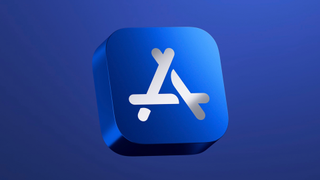Apple will finally allow downloading iOS apps from the Internet, but only in the EU
Apple’s walled garden continues to be dismantled – at least in EU member states. Apple has announced that iPhone (and iPad) users in the EU will soon be able to download apps directly from websites, just like you can on Windows or macOS.
The new options for app distribution (via MacRumors) also give developers more control over how in-app transactions are handled outside the official App Store, and allow third-party app stores to offer apps or games from a single developer.
It’s the web downloads that are the biggest change here, though, which Apple says will be enabled via software “later this spring” – so probably in March or April. The latest iOS 17.4 update was released last week, allowing third-party app stores to run on iPhone for the first time in the EU.
This is all in response to the Digital Markets Act (DMA) in the EU, which forces Apple to make it easier for other developers to distribute apps on the iPhone. None of these changes are coming to the US, Australia or Britain – although Britain has its own version of the DMA in the pipeline.
Caveat attached
Enabling web app downloads on iOS (and iPadOS) doesn’t mean anyone can put an app online for download: developers must have been in the official developer program for at least two years and have an app with more than a million installs in the EU in the year before.
There will also be ongoing requirements to meet, such as transparency about data collection policies and having a web domain registered with the App Store. Apple will still have some control over which apps you can and cannot download through a web browser.
Apple’s position, as it has always been, is that opening up app access in this way threatens users’ privacy and security because it gives Apple less control over third-party apps. The company complies with the DMA, but with great reluctance.
The EU also just slapped a massive €1.8 billion fine on Apple – about $1.96 billion / £1.54 billion / AU$2.98 billion – for preventing other music streaming services (like Spotify) from offering cheaper offerings on iOS to offer. That decision is currently being appealed.

